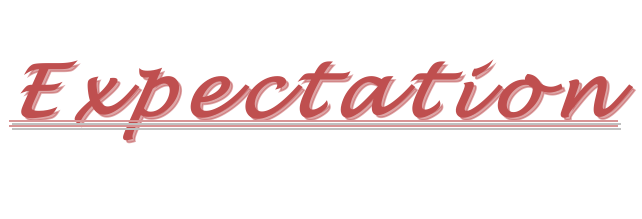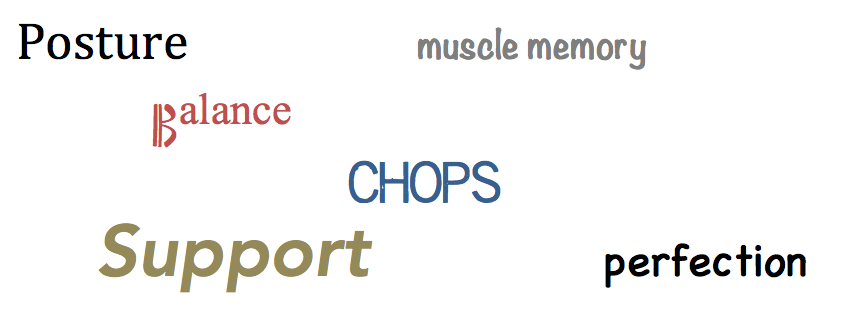Perseverance, discipline, passion, courage and faithfulness are qualities that every serious musician needs in order to achieve any kind of success (both/either commercial and/or artistic).
In this rapidly changing world, where the perceived value of artistic efforts in general is in a constant state of flux, I find it remarkable that there are so many marvelously talented, inspired, skilled and driven musicians.
With the advent of the internet and digital recording technology, along with the ever-changing cultures at music schools and in professional ensembles, the skill standards in musical performance seem dauntingly high.
No question in my mind that musicians are working as hard as ever pursuing excellence in their art and craft. In many genres of music, the precision with which many musicians play these days is at its peak.
And there are loads of great, highly useful resources (teachers/mentors, articles, DVDs, books, online subscriptions, etc.) available these days to help the serious musician improve and grow in order to meet the demands of today’s professional musical standards.
But there is one essential element that is rarely mentioned for succeeding in this fast-paced musical world we live in:
Sustainability.
Put simply, sustainability is having the capacity to continue doing what you love (playing music!), in a healthful and ultimately satisfying way.
Many of the musicians who seek my help as an Alexander Technique teacher do so, in large part, because of a particular issue of sustainability. Specifically, playing music for them has become uncomfortable, painful and in some cases, even injurious.
They might already be playing quite well (several of my clients are top-shelf performers in either classical, commercial or jazz music), but realize that they need to change something in themselves if they are to sustain the careers they so love.
Helping them to discover how to play with less strain, with less misdirected effort, with greater ease, balance and flexibility, is one of my deepest satisfactions.
But it is not uncommon for my clients, during the course of their work with me, to confront other aspects of sustainability.
For example, I have worked with professional symphonic musicians who’ve become so stressed out by the demands for “absolute precision” in their performances, that, even if they can deliver such “precision” (and many can!), they begin to lose the joy of what brought them to play music in the first place.
Their work experience is one of considerable worry, and even fear. This not only negatively impacts their musical performance experiences, but also deeply affects the quality of their lives in general.
Some time back, I gave Alexander Technique lessons to a highly accomplished brass player (principal player in a world-class orchestra) who related to me how stressful the entire day would be of whichever concert that he was playing.
He would sometimes have to “disconnect” from his family, isolating himself the entire day so that he could “focus” completely on the task at hand. (And keep in mind that he was playing hundreds of concerts per year!)
His “performance day” stories made me feel deeply sad. Though I envied his skill and accomplishments, I certainly did not envy the lifestyle of his “success”.
He also told me that his case was not at all unusual, and had loads of stories of his colleague’s “rituals” and “phobias” before concerts. He mentioned how their entire lives were in constant subjugation of their careers.
In essence, that kind of lifestyle was becoming more and more unsatisfactory, and ultimately, unsustainable for him and many of his colleagues. Lots of burn out, injuries, divorces, career changes and worse, for some of these folks, unfortunately.
And there are other issues of sustainability that musicians of varying levels of skill and success face.
Many serious amateur musicians, for example, are in a constant state of dissatisfaction with their practice efforts.
Either they’re frustrated because a lack of sufficient practice time keeps them too far from realizing their desires and potential, or that even when they do get enough practice, they keep running into the same, seemingly impossible hurdles in improving their skills.
A good amount musicians that have sought my help have done so because no matter how “hard” they practice, they can’t seem to improve. This becomes an unsustainable situation. Unless these musicians can learn to change what they do, to redirect their strategy and effort in a more constructive way, they will eventually stop playing.
As human beings, we are built to deal with adversity and disappointment, as long as there is meaning in this adversity and disappointment. But when we try, try, try, and get no discernible improvement, we begin to lose meaning.
And when we lose meaning, we eventually stop trying.
So it’s not enough just to practice that much “harder” (or longer), or even to find the best and latest exercises and techniques to keep you improving and meeting the demands of your profession and/or avocation. To stay in it for the long haul, your efforts, your passion…must be sustainable.
Here are some of the qualities of a sustainable musical life:
- Physical efficiency and ease. Yes ease. If every day that you practice feels like running a marathon, you’re likely to encounter chronic pain and possibly even injury. Learn to cultivate “effortless effort” (a good Alexander Technique teacher can really help a lot with this!) Staying healthy (physically and emotionally) is of prime importance!
- Artistic satisfaction. Yes, it’s okay to always want more, but learn to enjoy what is already there, what you already have. It’s okay to be happy with your efforts. Plus, you should be playing the kind of music that brings you satisfaction. It doesn’t have to be your dream gig, but you have to find pleasure in doing it, if you’re to continue.
- A balanced family/social life. Remember that you are a human being first. It is deeply wired into your brain and body to connect with those you love. Don’t let your musical life threaten your life as a human being. If you’re spending all your time practicing…well, you know that’s less than ideal, to say the least.
- A reasonably comfortable lifestyle. None of us are in it for the money. But if your professional life as a musician is keeping you in oppressive poverty, you might want to rethink a few things. You don’t have to be rich, but having a comfortable and safe home, with access to good food and health care, is essential for sustaining your efforts.
- Self-esteem. Knowing that you are being kind to yourself, that you are working on your music from a place of love (instead of fear), that you can accept the ups and downs of your artistic, professional and personal lives, and that you truly do love yourself, is probably the quality that will help you find the other for items mentioned above.
So continue to work hard, continue to strive, but always find meaning in what you do. Keep cultivating hope. Keep on keepin’ on!




